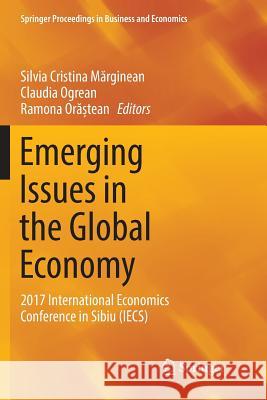Emerging Issues in the Global Economy: 2017 International Economics Conference in Sibiu (Iecs) » książka
topmenu
Emerging Issues in the Global Economy: 2017 International Economics Conference in Sibiu (Iecs)
ISBN-13: 9783319891132 / Angielski / Miękka / 2019 / 417 str.
Kategorie:
Kategorie BISAC:
Wydawca:
Springer
Seria wydawnicza:
Język:
Angielski
ISBN-13:
9783319891132
Rok wydania:
2019
Wydanie:
Softcover Repri
Ilość stron:
417
Waga:
0.59 kg
Wymiary:
23.39 x 15.6 x 2.21
Oprawa:
Miękka
Wolumenów:
01
Dodatkowe informacje:
Wydanie ilustrowane











